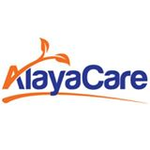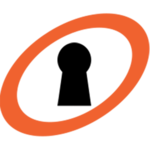Description

AlayaCare

Meditab
Comprehensive Overview: AlayaCare vs Meditab
AlayaCare:
a) Primary Functions and Target Markets
AlayaCare is a software platform designed specifically for the home healthcare industry. Its primary functions include:
- Clinical Documentation: Streamlining the process of clinical reporting for nurses and care providers.
- Scheduling and Time Management: Efficiently organizing visits, tasks, and shifts for care workers.
- Billing and Payroll: Automating administrative tasks related to billing and payroll for healthcare services.
- Client and Family Portals: Offering portals for clients and their families to view care details and schedules.
- Data Analytics: Providing tools for data-driven decision-making and outcome tracking.
Target Markets: The target market for AlayaCare consists primarily of home healthcare agencies, personal care providers, and community services organizations seeking robust, cloud-based solutions to enhance their care delivery processes.
b) Market Share and User Base
AlayaCare is a significant player in the home healthcare software market, although specific market share figures can vary. The company has garnered a broad user base with operations spreading across North America, Australia, and other regions. However, precise user numbers and comparative market presence against other competing platforms are typically proprietary information.
c) Key Differentiating Factors
- Focus on Home Healthcare: AlayaCare is specifically tailored for the unique needs of home healthcare, unlike other more generalized healthcare management systems.
- Comprehensive Platform: It covers a wide spectrum of home care needs from clinical documentation to family engagement.
- AI and Machine Learning: Incorporating advanced technologies to improve scheduling and operational efficiency.
Meditab:
a) Primary Functions and Target Markets
Meditab offers a robust electronic health record (EHR) system known as IMS (Intelligent Medical Software), which provides:
- EHR Management: Comprehensive tools for managing patient records electronically.
- Practice Management: Features for appointment scheduling, billing, and insurance claims processing.
- Patient Engagement: Portals for enhancing patient communication and care coordination.
- Specialty-specific Solutions: Modules tailored to specialized medical fields like allergy, chiropractic, and more.
- Telehealth Capabilities: Solutions to facilitate virtual patient consultations.
Target Markets: Meditab targets a broad range of healthcare providers, from small practices to large specialized clinics, with its diverse modules that cater to various medical specialties.
b) Market Share and User Base
Meditab, with its IMS, is a well-known entity in the EHR market, serving thousands of practices across different medical specialties. Like AlayaCare, specific market share details can be difficult to ascertain publicly, but Meditab's presence is notable across the United States and internationally, thanks to its tailored solutions for specialty practices.
c) Key Differentiating Factors
- Specialty-focused Modules: Offers modules tailored to various medical specialties, providing more customized solutions for a wide range of practices.
- Integrated System: Combines EHR, practice management, and patient engagement in one unified platform.
- Adaptability and Customization: Highly customizable to fit the unique workflows and needs of different medical practices.
Comparison:
- Market Focus: AlayaCare is niche-focused on home healthcare, while Meditab is broader, catering to various specialty practices.
- Platform Focus: AlayaCare emphasizes home care-centric features, whereas Meditab offers a traditional EHR system with broad practice management tools.
- User Experience: AlayaCare provides a specialized platform that may offer a more tailored experience for home care, while Meditab’s adaptability makes it appealing for practices needing specialty-specific features.
- Technology Integration: Both companies use advanced technologies but AlayaCare's use of AI is more prominently aimed at optimizing home healthcare delivery and operations.
These differences make AlayaCare more suitable for home healthcare agencies, whereas Meditab would be ideal for specialized practice settings requiring a comprehensive EHR system.
Contact Info

Year founded :
2014
+1 514-316-5606
Not Available
Canada
http://www.linkedin.com/company/alayacare-inc

Year founded :
2020
Not Available
Not Available
Nigeria
Not Available
Feature Similarity Breakdown: AlayaCare, Meditab
When comparing AlayaCare and Meditab, both being prominent solutions in the healthcare software domain, it's useful to break down their similarities and unique features as well as their user interfaces. Here is an overview:
a) Core Features in Common
-
Electronic Health Records (EHR):
- Both AlayaCare and Meditab provide comprehensive EHR solutions, enabling the storage and management of patient information digitally.
-
Scheduling and Appointment Management:
- Both platforms offer tools for managing patient appointments, including scheduling, reminders, and calendar management.
-
Billing and Invoicing:
- AlayaCare and Meditab include billing capabilities to manage invoicing, claims submission, and payment processing.
-
Clinical Documentation:
- Both platforms provide features for clinical documentation, allowing healthcare providers to document patient interactions and care plans effectively.
-
Reporting and Analytics:
- Both systems offer reporting and analytics tools to help healthcare providers make data-driven decisions.
-
Patient Portal:
- Each platform offers a patient portal for patients to access their health information, communicate with providers, and manage appointments.
b) User Interface Comparison
-
AlayaCare:
- AlayaCare is known for its modern and intuitive interface, which emphasizes ease of use. It often highlights its mobile-first approach, given its strong focus on home care services. The interface is designed to be user-friendly for both caregivers in the field and administrators in the office, offering a cohesive experience across devices.
-
Meditab:
- Meditab typically offers a more traditional user interface compared to AlayaCare. It provides customizable dashboards tailored to specific healthcare environments, meaning that the experience might vary significantly between different setups. While functional, some users might find it less intuitive than newer platforms.
c) Unique Features
-
AlayaCare:
- Home Care Focus: AlayaCare specializes in home healthcare, providing advanced features tailored for mobile caregivers, such as visit verification, route optimization, and mobile charting.
- Cloud-Based Platform: Known for its robust cloud-based system that facilitates remote access and collaboration, making it particularly useful for distributed care teams.
-
Meditab:
- EMR Flexibility: Meditab’s signature product, Intelligent Medical Software (IMS), offers highly customizable electronic medical records to fit various specialties, including pediatrics, gynecology, and more.
- Specialty-Specific Modules: Meditab provides several specialty-specific modules and templates, making it particularly attractive for practices that require highly specialized solutions (e.g., AllergyEHR for allergy clinics).
- Integrated Practice Management: Meditab offers strong practice management functionality that integrates seamlessly with its EMR system, supporting everything from patient scheduling to billing under a single platform.
In summary, while AlayaCare and Meditab share many core healthcare management features, AlayaCare distinguishes itself with its focus on home care and ease of use, while Meditab's strength lies in its customization possibilities and specialized modules for different medical practices. As for user interfaces, AlayaCare tends to be more intuitive and mobile-friendly, making it advantageous for field use, whereas Meditab offers a more traditional, customizable approach suitable for various practice needs.
Features

Not Available

Not Available
Best Fit Use Cases: AlayaCare, Meditab
AlayaCare and Meditab are both software solutions catering to the healthcare industry, but they serve different segments and business needs. Here's a breakdown of their ideal use cases and how they fit into different industry verticals and company sizes:
AlayaCare
a) Best Fit Use Cases:
-
Home Healthcare Providers:
- AlayaCare is specifically designed for home care providers. It includes features like clinical documentation, scheduling, billing, and a family portal, which are essential for agencies managing in-home care professionals.
- Its mobile app is particularly useful for caregivers on-the-go, ensuring they have access to patient information, scheduling, and reporting tools while in the field.
-
Aging and Long-term Care Organizations:
- Organizations providing aging and long-term care services benefit from AlayaCare’s robust care management tools which help track patient outcomes, improve compliance, and streamline operations.
-
Community Care Providers:
- For organizations involved in community care, AlayaCare offers solutions to manage and deliver community health services effectively.
d) Industry Verticals and Company Sizes:
- Industry Verticals: AlayaCare primarily caters to the home healthcare, long-term care, and community care sectors.
- Company Sizes: It is ideal for small to medium-sized healthcare agencies. Large organizations with complex care delivery models can also benefit but might require custom integrations.
Meditab
b) Preferred Scenarios:
-
Medical Practices and Clinics:
- Meditab offers a comprehensive electronic health record (EHR) solution tailored for various medical specialties, making it ideal for clinics and individual practices looking to streamline clinical and administrative workflows.
-
Specialty Practices:
- It supports specialty-specific needs through customizable modules, making it a good fit for practices like allergists, urologists, and pulmonologists.
-
Behavioral Health and Rehabilitation Centers:
- Meditab’s flexible solutions support behavioral health services, which may require specialized documentation and compliance features.
d) Industry Verticals and Company Sizes:
- Industry Verticals: Meditab caters to a broader range of clinical settings, including specialty clinics, general practices, and behavioral health centers.
- Company Sizes: It is suitable for small to large-sized practices that need comprehensive EHR systems with customizable features. Its scalability allows it to serve single-provider practices to larger multi-location groups.
In essence, AlayaCare is more specialized for home and community care services, focusing on mobility and ease of care management, while Meditab offers a broader EHR solution that is suitable for a wider range of clinical environments, particularly those requiring customization for specialty practices.
Pricing

Pricing Not Available

Pricing Not Available
Metrics History
Metrics History
Comparing teamSize across companies
Conclusion & Final Verdict: AlayaCare vs Meditab
To determine which product offers the best overall value between AlayaCare and Meditab, it's important to evaluate each based on their features, usability, customer support, pricing, and scalability.
a) Best Overall Value
AlayaCare tends to offer the best overall value for organizations focused on home healthcare. It provides comprehensive features tailored for home and community care settings, including scheduling, mobile clinical documentation, and billing functionalities.
Meditab, on the other hand, is a robust solution for medical practice management and electronic health records (EHR) that can suit a wider range of healthcare settings, particularly for practices seeking a comprehensive EHR with integrated office management tools.
b) Pros and Cons
AlayaCare Pros:
- Comprehensive Home Care Features: Specialized tools for home and community care services.
- Mobile Application: Strong mobile support allows caregivers to update records in real-time from the field.
- Flexibility: Offers a customizable platform to meet specific organizational needs.
- Intuitive Interface: User-friendly design makes it easy for staff to adapt.
AlayaCare Cons:
- Industry Focus: Primarily caters to home care, which might limit its applicability for traditional clinical settings.
- Cost: Pricing can be high for smaller agencies or startups.
- Integration Limitations: May require additional integration setup for full functionality with other healthcare systems.
Meditab Pros:
- Comprehensive EHR Capabilities: Very robust EHR with a wide range of clinical tools and templates.
- Versatility: Suitable for various healthcare settings beyond just home healthcare.
- Customizability: Highly customizable to fit the unique needs of different practices.
- Integrated Solutions: Offers integrated billing and practice management tools.
Meditab Cons:
- Learning Curve: May require more training due to its complex features and customizability.
- Overwhelming for Small Practices: Could be challenging for smaller practices needing only basic features.
- Cost Variability: Pricing can be variable depending on the added services and modules.
c) Recommendations for Users
-
Assess Your Specific Needs: If you are primarily a home care provider, AlayaCare's focused tools on home care might be better suited. Conversely, if your practice involves various clinical services, Meditab’s wide-ranging EHR capabilities may prove more beneficial.
-
Consider Scalability: Think about your growth plans. AlayaCare may require additional costs as you scale, and while Meditab is versatile, its complexity might be more than necessary for smaller settings.
-
Evaluate Usability: Perform a trial with both systems, if possible, to see which one feels more intuitive for your team's daily workflow.
-
Check Integration Requirements: Ensure that the chosen system integrates well with your existing technology stack to avoid complications and additional costs.
In conclusion, AlayaCare tends to be better for home care agencies needing specialized home health features, while Meditab suits a broader range of practices seeking a comprehensive EHR and practice management solution. Your choice should be guided by the scope of your services, budget, and the specific functionalities you need in your workflow.
Add to compare
Add similar companies



